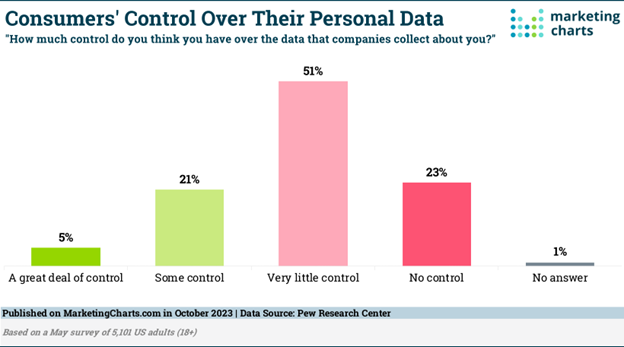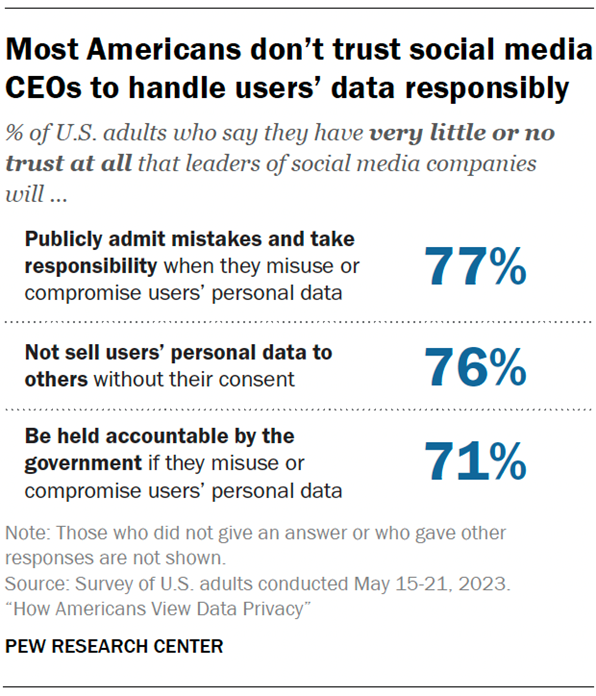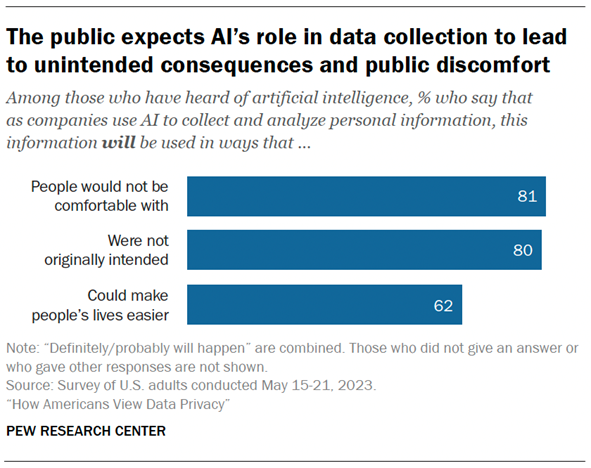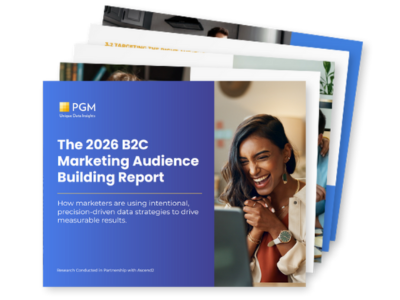Consumers are increasingly aware of the digital footprint they leave behind. With every click, like, purchase, and app download, personal data is generated, collected, and used by companies.
However, as data breaches and privacy scandals make headlines, consumers are more aware than ever about how their data is being used.
In a recent study by Pew Research Center, almost three in four consumers feel they have little or no control over their data privacy.

Additionally, 81% of adults say they’re either very (35%) or somewhat (46%) concerned about how companies are using the data they collect about them.
Social Media and Data Privacy
The research also asked consumers about the state of their social media and data privacy. Unfortunately, most Americans stated that they do not trust social media executives to use their data responsibly. Over 3 in 4 don’t trust that their data will be sold without their consent.

The Role of Artificial Intelligence and Data Privacy
The rise of AI has brought a whole new set of concerns to consumers and their data privacy. Over 8 in 10 of those familiar with AI say its use by companies will lead to people’s personal information being used in ways they won’t be comfortable with.

The Tug-of-War: Convenience vs. Privacy
Consumers have become accustomed to the convenience and personalization that digital services offer. Personalized recommendations, tailored ads, and one-click purchases have become the norm. Many appreciate the convenience that sharing their data brings, as it enhances their online experience.
Consumers are willing to share their data in certain instances for a more personalized experience. In a survey of more than 7,000 consumers, Salesforce found that 57% of consumers are willing to share personal data in exchange for personalized offers or discounts. Similarly, 52% of consumers would share personal data in exchange for product recommendations, and 53% would do the same for personalized shopping experiences.
However, simultaneously, consumers are increasingly concerned about how their data is collected, stored, and shared. High-profile data breaches, misuse of personal information, and the selling of data to third parties have fueled these concerns. People worry about their sensitive information falling into the wrong hands.
The Role of 1st Party Data in Today’s Privacy Environment
With stricter privacy regulations and cookie deprecation, brands must place greater emphasis on the data they can most easily access in the form of their first-party data.
First-party data refers to the information collected directly from customers or users. This data is owned and controlled by the brand. By relying on first-party data, brands reduce their dependence on potentially risky third-party data sources.
Using first-party data demonstrates a commitment to transparency and user trust. Consumers are more likely to trust brands that collect their data directly and provide clear information on how it will be used.
First-party data collection also aligns with the principles of privacy regulations like GDPR and CCPA. Brands can more easily comply with these laws when they primarily rely on data obtained directly from their customers.
For consumers who are looking for a more personalized experience, first-party data allows brands to create more accurate customer profiles, leading to more effective personalization efforts. Brands can tailor marketing messages and offerings to individual preferences while maintaining privacy compliance.
Consumer sentiments about data privacy are continually evolving. While many consumers value the convenience and personalization that data sharing enables, they also harbor concerns about the misuse and mishandling of their personal information.
It is essential for businesses to prioritize transparent data practices and for policymakers to continue working toward stronger data privacy protections, ensuring that consumers feel their personal information is respected and safeguarded in the digital age.






